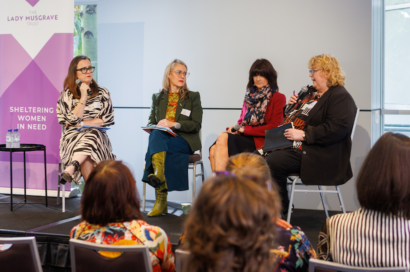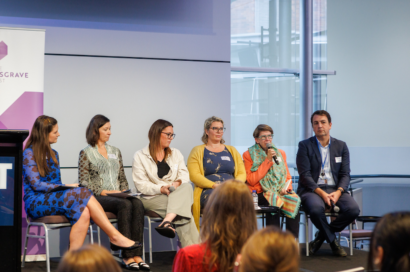
Residential Aged Care and Care in the Community
May 29, 2020
This section mainly considers care for older women aged 65 years or older. If you are under 65 and need care as a result of a disability then the National Disability Insurance Scheme (NDIS) should be considered.
Many people know nothing about aged care, aside from possibly having memories of visiting elderly relations in a 'home'. When they do finally encounter the world of aged care, either through helping a parent or possibly for themselves or a partner, they discover a complex, confusing and costly world with a language all its own.
Whilst this is not the case for everyone, it is true that declining physical and cognitive health is often a part of growing older. Your planning for the future should acknowledge this and consider what is available to you if you need care. This is especially so for women, who tend to live live longer, have lower incomes and are more likely to be on their own than men.
Care in the home
The strong preference of Australians is to stay in their home. The right home will make this more likely – homes that are expensive to maintain, have poor heating and cooling, have many stairs or bathrooms that are hard to use if you are unsteady can all make life more difficult.
Community care is available to people to help them continue to safely live in their own home. Services include cleaning, meal preparation, personal care, and help to get out and about and keep up social connections or to go shopping or to medical appointments.
Residential Aged Care
The other form of aged care is in an aged care home (sometimes called a nursing home or residential aged care facility) when more care is needed than can be provided at home. Aged care homes are different from serviced apartments and other forms of “Over 50s” housing where cleaning, linen and meals services may be available on site. The difference is largely around the availability of nursing and personal care. These facilities – in fact, all aged care services – are regulated by the Australian Government.
There are subsidies available to help pay for aged care. Care can be very expensive if you need to move into a care home or need a lot of help at home. Subsidies depend on your income and the level of care you need. A lot of information is needed to apply and also assessments are needed to determine the level of care needed.
When you finally know what you are entitled to, you need to choose a service or aged care home. There are many providers around, so being a smart consumer is an important element of this process. Having someone to help you through this process can be invaluable.
Planning and Decision Making
Ignoring your future care needs essentially leaves these decisions to others, and can limit your choice and control when and if you do need more care.
As with all options, careful research is needed. Sometimes, however, people need to choose an aged care home quickly when they are under a lot of stress and anxiety. A friend or family member that can travel the journey with you can be invaluable.
Some questions to consider include:
- What subsidies can I get?
- What services do I need? How can I keep doing those things that are most important to me?
- What is available at home?
- How much will I need to contribute? Will I have to sell my home to go into an aged care home?
- Would short term care (respite) be worth trying to see what it is like in an aged care home, or to give me longer to see if there is a way I can return home?
- What if I don’t like the aged care home?
- How easy will it be for friends and family to visit?
- Do I understand the legal arrangements?
Get independent financial or legal advice before you make any decision about residential aged care and care in the community.
Services
Need a break for caring for a family member? There are a variety of respite services available for people with disabilities or ageing.
Phone: 1800 422 737
Easy-to-understand practical information on available services, possible payment options and respite care. An interactive service finder connects you to local support. Mon-Fri 8am-6pm
Phone: 1300 107 753
Respite and education programs to assist with managing the needs of the person you care for.
Phone: 1800 692 273
OZCare’s aged care and dementia care respite service can come to your home and take care of the person you care for, while you have a break. Available during the day and overnight, they can be scheduled as one-off’s or ongoing. Our experienced carers can assist you with a range of tasks, including meal preparation and cooking, cleaning, washing up, and other domestic chores, transport and outings in the community, personal care such as showering and dressing, and playing games and doing craft. Costs will be determined by your eligibility for the Commonwealth Home Support Programme (CHSP) or a Home Care Package (HCP). Depending on your circumstances you may not need to pay anything at all.
Phone: 1800 200 422
My Aged Care is an Australian Government Service to assist older people and their families who need care in their daily lives. The service is a website and 1800 number to assist people learn more about and apply for Australian Government funded or subsidised aged care services.
OPAN - Older Persons Advocacy Network
The Aged Care system is complex and can be difficult to access and navigate. OPAN can help if you get stuck. The Older Persons Advocacy Network (OPAN) is a national network across Australia of organisations that have been successfully delivering advocacy, information and education services to older people in metropolitan, regional, rural and remote Australia for over 25 years. The Network’s free services support older people and their representatives to address issues related to Commonwealth funded aged care services. Older Persons Advocacy Network is funded by the Australian Government.




